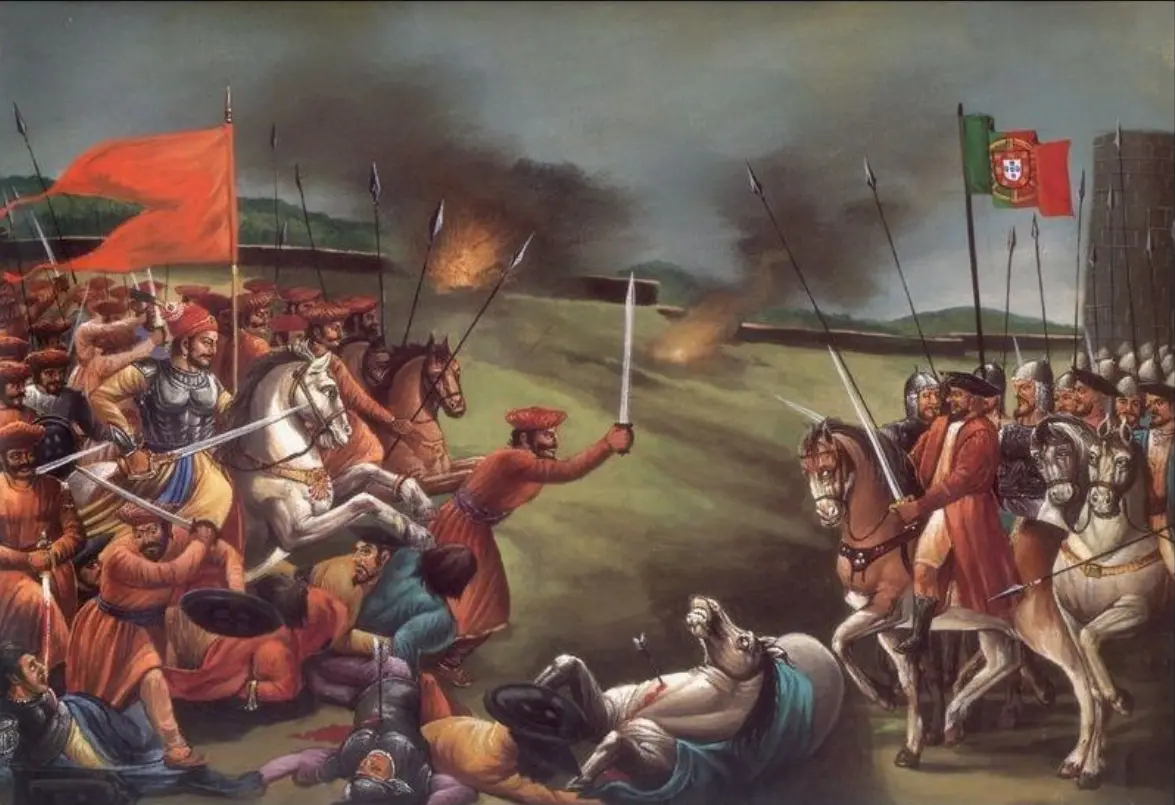|
Portuguese in India: Rise, Failures, and European Competition |
Portuguese in India: Rise, Peak, and Coastal Confinement
The Portuguese were the First Europeans to reach India and set up trading posts. They were successful in ending the Arab monopoly of trade with Asia. Yet after initial success, their empire failed to grow much and was later limited to only a few small parcels on land on the Indian Coastline like Goa, Daman and Diu.
Portuguese in India: Policies, Politics, and Global Rivalries
- Portuguese socio-economic and political policies along with the political conditions prevailing in India and the increasing competition for colonies in Europe are among the most important reasons for Portuguese decline in India decline.
Portuguese in India: Decline Amid Leadership, Rivalries, and Setbacks

- Lack of Strong Local Leadership: After Albuquerque the Portuguese in India administration in India became inefficient because his successors, especially after Nuno da Cunha were weak & inefficient.
- Intense Political Rivalries: There was a lack of trust amongst many Kings and Governors, and amongst the Officials associated with Indian possessions.
- Recall of officials due to political differences became a common theme.
- Example: Albuquerque’s appointment was disputed by Almeida and he was arrested.
- Overstretched Resources: The discovery of gold mines in Brazil and Argentina shifted their focus away from India.
- Widespread Corruption: The Portuguese in India officials were neglected by the home government. Their salaries were low. Thus, they indulged in corruption and malpractice.
- Example: Duarte de Menezes was arrested on charges of corruption by his successor Vasca Da Gama.
- Lack of Territorial Hold: The Portuguese in India empire was basically a trading empire and their initial ‘Blue Water’ Policy ensured that they relied on naval superiority and thus lacked territorial expansion.
- Rise of Mughal: Early 16th century political landscape was highly fragmented, but it changed with the accession of Akbar to the Mughal throne in 1556 after the Second Battle of Panipat.
- Capture of Gujarat by Akbar and successive strong rulers in Delhi, kept Portuguese in India territorial ambitions in check.
- Religious Policies: Portuguese in India religion policies were oppressive and discriminatory.
- It started with missionary work, leading to destruction of Hindu temples, and culminating with the Inquisitions (advocated by St. Francis Xavier) which alienated the local population.
- This led to regular conflicts first with the Deccan Sultans and later with the Marathas.
- Annexation by Spain: 1580 Philip II, King of Spain, annexed Portugal during the Portuguese succession crisis.
- It led to lowered preference for Portuguese interest and various restrictions on their businesses.
- Rise of other European Powers: The Dutch took over many Portuguese trading centers such as Malacca (1641), Colombo (1656) and Cochin (1663).
- Later, the English dominated Sea trade from India.
- Rise of Marathas: Marathas under Peshwas become strong on the eastern side.
- They attacked Goa which created a severe disruption to Portuguese trade.
- Diplomatic Failure: The Portuguese in India was resented by all their neighbors and when the situation arose, they always sided with Portugal’s adversaries.
- Example: Defeat in Malacca and Cochin by the Dutch through local support.
Conclusion:
The impact of all these reasons was that the Portuguese even after being the First European Power to arrive in India had a limited impact after the middle of the Eighteenth century and especially after the arrival of other European Powers like Danes, English and French.
Also Read: The Advent of Europeans in India: Reasons, Contributions, Impact and Rivalries

 GS Foundation
GS Foundation Optional Course
Optional Course Combo Courses
Combo Courses Degree Program
Degree Program









